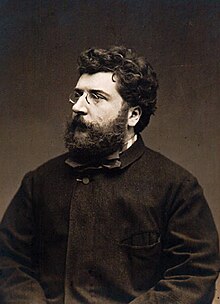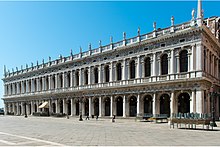
Back Portaal:Europa Afrikaans بوابة:أوروبا Arabic ܬܪܥܐ:ܐܘܪܘܦܐ ARC Portal:Avropa Azerbaijani Партал:Эўропа BE-X-OLD Портал:Европа Bulgarian دەروازە:ئەورووپا CKB Portál:Evropa Czech Portal:Europa German Portal:Ewropa DIQ
| Main | Geography | Projects |
|
|
Europe is a continent located entirely in the Northern Hemisphere and mostly in the Eastern Hemisphere. It comprises the westernmost peninsulas of the continental landmass of Eurasia, and is bordered by the Arctic Ocean to the north, the Atlantic Ocean to the west, the Mediterranean Sea to the south, and Asia to the east. Europe is commonly considered to be separated from Asia by the watershed of the Ural Mountains, the Ural River, the Caspian Sea, the Greater Caucasus, the Black Sea, and the waterways of the Turkish Straits. Although much of this border is over land, Europe is generally accorded the status of a full continent because of its great physical size and the weight of history and tradition.
Europe covers about 10,180,000 km2 (3,930,000 sq mi), or 2% of the Earth's surface (6.8% of land area), making it the second smallest continent (using the seven-continent model). Politically, Europe is divided into about fifty sovereign states, of which Russia is the largest and most populous, spanning 39% of the continent and comprising 15% of its population. Europe had a total population of about 741 million (about 11% of the world population), as of 2018. The European climate is largely affected by warm Atlantic currents that temper winters and summers on much of the continent, even at latitudes along which the climate in Asia and North America is severe. Further from the sea, seasonal differences are more noticeable than close to the coast.
The history of Europe concerns itself with the discovery and collection, the study, organization and presentation and the interpretation of past events and affairs of the people of Europe since the beginning of written records. During the Neolithic era and the time of the Indo-European migrations, Europe saw human inflows from east and southeast and subsequent important cultural and material exchange. The period known as classical antiquity began with the emergence of the city-states of ancient Greece. Later, the Roman Empire came to dominate the entire Mediterranean basin. The fall of the Roman Empire in AD 476 traditionally marks the start of the Middle Ages. Beginning in the 14th century a Renaissance of knowledge challenged traditional doctrines in science and theology. Simultaneously, the Protestant Reformation set up Protestant churches primarily in Germany, Scandinavia and England. After 1800, the Industrial Revolution brought prosperity to Britain and Western Europe. The main European powers set up colonies in most of the Americas and Africa, and parts of Asia. In the 20th century, World War I and World War II resulted in massive numbers of deaths. The Cold War dominated European geo-politics from 1947 to 1989. After the fall of the Iron Curtain, the European countries grew together.
The culture of Europe is rooted in the art, architecture, film, different types of music, economic, literature, and philosophy that originated from the continent of Europe. European culture is largely rooted in what is often referred to as its "common cultural heritage".
The economy of Europe comprises more than 744 million people in 50 countries. The formation of the European Union (EU) and in 1999, the introduction of a unified currency, the Euro, brings participating European countries closer through the convenience of a shared currency and has led to a stronger European cash flow. The difference in wealth across Europe can be seen roughly in former Cold War divide, with some countries breaching the divide (Greece, Estonia, Portugal, Slovenia and the Czech Republic). Whilst most European states have a GDP per capita higher than the world's average and are very highly developed (Liechtenstein, Luxembourg, Monaco, Andorra, Norway, Sweden, Denmark, Netherlands, Switzerland, United Kingdom, Ireland, Germany), some European economies, despite their position over the world's average in the Human Development Index, are poorer.
Featured article -

The World Series of Poker Europe (WSOPE) is the first expansion effort of World Series of Poker-branded poker tournaments outside the United States. Since 1970, participants have had to travel to Las Vegas if they wanted to compete in the World Series of Poker (WSOP). Although the WSOP held circuit events in other locations, the main tournaments, which awarded bracelets to the winners, were exclusively held in Las Vegas. The inaugural WSOPE, held in 2007, marked the first time that a WSOP bracelet was awarded outside Las Vegas.
In 2004, Harrah's Casinos purchased the rights to the WSOP label. Harrah's later purchased London Clubs International (LCI). LCI operates three casinos in the London area—Fifty, Leicester Square, and The Sportsman. After the purchase of these casinos, Harrah's decided to expand its WSOP label into Europe. European casinos typically have a different environment than those in the U.S. Jeffrey Pollack, the WSOP Commissioner, indicated that the WSOPE would have a "style and flair that is both unique and appropriate to the setting. So don't be surprised if we require participants to wear blazers at the tables. If James Bond were hosting a poker tournament it may look like the World Series of Poker Europe." (Full article...)Featured location -
The Marciana Library or Library of Saint Mark (Italian: Biblioteca Marciana, but in historical documents commonly referred to as Libreria pubblica di san Marco) is a public library in Venice, Italy. It is one of the earliest surviving public libraries and repositories for manuscripts in Italy and holds one of the world's most significant collections of classical texts. It is named after St Mark, the patron saint of the city.
The library was founded in 1468 when the humanist scholar Cardinal Bessarion, bishop of Tusculum and titular Latin patriarch of Constantinople, donated his collection of Greek and Latin manuscripts to the Republic of Venice, with the stipulation that a library of public utility be established. The collection was the result of Bessarion's persistent efforts to locate rare manuscripts throughout Greece and Italy and then acquire or copy them as a means of preserving the writings of the classical Greek authors and the literature of Byzantium after the fall of Constantinople in 1453. His choice of Venice was primarily due to the city's large community of Greek refugees and its historical ties to the Byzantine Empire. The Venetian government was slow, however, to honour its commitment to suitably house the manuscripts with decades of discussion and indecision, owing to a series of military conflicts in the late-fifteenth and early-sixteenth centuries and the resulting climate of political uncertainty. The library was ultimately built during the period of recovery as part of a vast programme of urban renewal aimed at glorifying the republic through architecture and affirming its international prestige as a centre of wisdom and learning. (Full article...)List of featured locations
|
|---|
Featured portrait
 |
In the News
- 14 February 2024 – Russian invasion of Ukraine
- Crimea attacks
- Ukraine claims to have sunk the Russian ship Tsezar Kunikov off the coast of Katsiveli, Crimea. A video appears to show the vessel being struck with unmanned surface drones. (Radio Free Europe/Radio Liberty)
- 13 February 2024 – Estonia–Russia relations
- Prime Minister of Estonia, Kaja Kallas, is reportedly placed on the Russian Interior Ministry's register of wanted people due to the country's removal of Soviet War Memorials, making Kallas the first known government leader to be added to a wanted list by Russian authorities. (The Guardian)
- 12 February 2024 – Israel–Hamas war
- Israel–Netherlands relations
- A Dutch appeals court orders a suspension of exports of F-35 jet parts to Israel within the next seven days over concerns that the aircraft parts are being used to commit serious violations of international humanitarian law. Prime Minister Mark Rutte says that the government will appeal the suspension. (Reuters)
- 12 February 2024 – Israel–United Kingdom relations
- British Foreign Secretary David Cameron announces sanctions against four Israeli settlers for engaging in extremist violence towards Palestinians in the occupied-West Bank. (Al Jazeera)
Updated: 16:33, 14 February 2024
Categories
Featured biography -

Georges Bizet (né Alexandre César Léopold Bizet; 25 October 1838 – 3 June 1875) was a French composer of the Romantic era. Best known for his operas in a career cut short by his early death, Bizet achieved few successes before his final work, Carmen, which has become one of the most popular and frequently performed works in the entire opera repertoire.
Featured picture
 |
Related portals
Major Religions in Europe
Northern Europe
Western Europe
Central Europe
Eastern Europe, Balkans and Caucasus
Southern Europe
Featured panorama
 |
Topics
Associated Wikimedia
The following Wikimedia Foundation sister projects provide more on this subject:
-
Commons
Free media repository -
Wikibooks
Free textbooks and manuals -
Wikidata
Free knowledge base -
Wikinews
Free-content news -
Wikiquote
Collection of quotations -
Wikisource
Free-content library -
Wikispecies
Directory of species -
Wikiversity
Free learning tools -
Wikivoyage
Free travel guide -
Wiktionary
Dictionary and thesaurus
More portals
© MMXXIII Rich X Search. We shall prevail. All rights reserved. Rich X Search
























